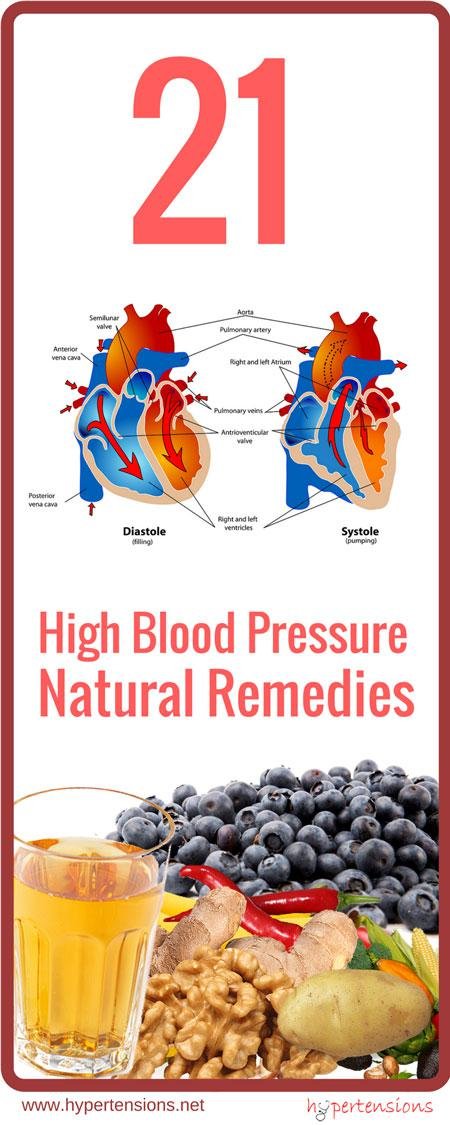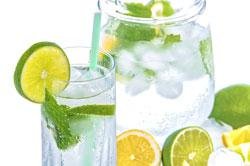High blood pressure, also known as hypertension, is a common foe in today's world. It affects nearly one in three Americans, and the numbers keep climbing.
The scary part? High blood pressure often has no symptoms, earning it the nickname "silent killer." It can silently wreak havoc on your heart, brain, kidneys, and more, leading to serious health problems.
But don't despair! There's good news. While medication plays a role in managing hypertension, there's a wealth of natural remedies for high blood pressure waiting to be explored. By making some simple lifestyle changes and incorporating powerful natural foods into your diet, you can significantly improve your heart health and potentially reverse the course of high blood pressure (1).
Natural Ways to Lower Your Blood Pressure
Here are some of the best natural remedies for high blood pressure.
- Diet: This is your secret weapon!
- Fruits and Veggies:These powerhouses are packed with potassium, a mineral that counteracts the negative effects of sodium. Aim for bananas, spinach, oranges, and dried fruits like raisins and apricots.
- Fish:Fatty fish like salmon, mackerel, and herring are rich in omega-3 fatty acids, which can lower bad cholesterol and improve blood vessel health.
- Whole Grains:Swap refined carbs for whole grains like brown rice and quinoa. These keep you feeling fuller for longer, helping with weight management, another crucial factor for blood pressure control.
- Exercise: Get moving! Regular physical activity strengthens your heart and improves blood flow, naturally lowering blood pressure. Aim for at least 30 minutes of moderate-intensity exercise most days of the week. Brisk walking, swimming, or biking are all excellent choices.
- De-Stress: Chronic stress can wreak havoc on your blood pressure. Techniques like meditation, yoga, and deep breathing can help you relax and manage stress effectively.
- Reduce Salt: This one's a no-brainer. Salty foods can cause your blood pressure to spike. Cut back on processed foods, restaurant meals, and added table salt.

Natural Powerhouses for Blood Pressure Control
Now, let's explore some amazing natural foods that can be your allies in the fight against high blood pressure:
- Garlic: This flavorful friend contains a compound called allicin, which may help relax blood vessels and lower blood pressure. Enjoy it raw, cooked, or even in capsule form (2).
- Ginger: This wonder root's active ingredient, gingerol, can help lower blood pressure and cholesterol. Sip on ginger tea or add it to your meals.
- Onion: This common veggie contains an active antioxidant flavonol called quercetin, which helps reduce blood pressure. Enjoy one medium onion daily with your salad or try a mixture of one tablespoon of honey with one teaspoon of onion juice each morning for a potential additional benefit.
- Celery: This crunchy veggie is a champion for relaxation. It contains compounds that help dilate blood vessels and may also reduce stress hormones, leading to lower blood pressure.

- Beets: Beets and beet juice are a natural source of nitrates, which convert to nitric oxide in the body. Nitric oxide helps relax blood vessels, potentially leading to lower blood pressure readings. Enjoy beets roasted, boiled, or juiced for a potential blood pressure benefit.
- Dark Leafy Greens: Leafy greens like spinach, kale, and collard greens are loaded with vitamins, minerals, and nitrates, all potentially beneficial for blood pressure control.
- Lemon: This vitamin C powerhouse is a natural antioxidant. While not a magic bullet, lemon juice with water can be a refreshing way to support your overall health.

- Potatoes:While often demonized for their carb content, potatoes are actually a good source of potassium. In today's world, with our tendency to consume more salt, additional potassium is crucial to balance the sodium-potassium ratio in the body. A high sodium-potassium ratio can contribute to higher blood pressure. So, include potatoes (both white and sweet) in your diet for their potassium content.
- Soy: Soy and soy products have shown promise in reducing systolic blood pressure. Consider gradually replacing some refined carbohydrates with soy products like tofu and tempeh for a heart-healthy
Foods to Lower Blood Pressure
- Blueberries: These antioxidant superstars are loaded with flavonoids that can keep your heart healthy and may even help lower blood pressure.
- Berries: Other berries like strawberries, raspberries, and cranberries are also rich in antioxidants and may offer some blood pressure-lowering effects.
- Pomegranate: This jewel-toned fruit is packed with antioxidants called polyphenols, which can help improve blood flow and potentially reduce blood pressure. Enjoy pomegranate seeds on their own, or add them to yogurt, oatmeal, or smoothies for a burst of flavor and a potential blood pressure benefit.
- Watermelon: This juicy summer treat is more than just delicious. It contains citrulline, which converts to nitric oxide in the body, helping to relax blood vessels and lower blood pressure. Don't forget the seeds – they're packed with another beneficial compound called cucurbocitrin.
- Dark Chocolate: Indulge guilt-free! Dark chocolate with at least 70% cocoa content contains flavonoids that can help relax blood vessels and improve blood flow. But remember, moderation is key.
- Fish:Certain fish are rich in omega-3 fatty acids, essential for heart health. Omega-3s can help lower bad cholesterol (triglycerides) and raise good cholesterol (HDL), both contributing to lower blood pressure. Choose fish like mackerel, salmon, herring, sardines, and albacore tuna for the most benefits.
Natural Supplements for High Blood Pressure
- Green Tea: This tea is packed with an active component called catechins, which may help reduce blood pressure. Green tea also offers weight management benefits, another factor in blood pressure control. So, if you're a tea drinker, consider switching to green tea.
- Hibiscus Tea: Studies suggest hibiscus tea acts as a natural diuretic, similar to some blood pressure medications (ACE inhibitors) but with a milder effect. This brightly colored tea can be a helpful addition to your blood pressure control Be mindful of not consuming it in excess, as hibiscus is rich in manganese, iron, and copper, and excessive intake can disrupt your mineral balance.
- Honey: Honey is known for its soothing properties, and it can also have a calming effect on your heart and blood vessels. Consider having honey with ginger juice for an extra boost. You can also try taking 2 tablespoons of honey in the morning before eating anything else to potentially help manage your blood pressure.
- Flaxseeds: These tiny seeds are a rich source of omega-3 fatty acids and fiber, both beneficial for heart health and blood pressure control. Omega-3s help lower bad cholesterol and inflammation, while fiber helps manage weight, another factor impacting blood pressure. Grind flaxseeds into a powder to enhance their digestibility and sprinkle them on cereal, yogurt, or oatmeal.
- Nuts and Other Seeds: In addition to flaxseeds, nuts and seeds like almonds, walnuts, and sunflower seeds are a good source of healthy fats, fiber, and magnesium, all contributing to heart health and potentially lowering blood pressure.
- Olive Oil: This heart-healthy fat is a staple in the Mediterranean diet, known for its blood pressure-lowering benefits. Rich in monounsaturated fats, olive oil helps lower bad cholesterol (LDL) and improve blood vessel health. Extra virgin olive oil offers the most benefits, so drizzle it on salads, vegetables, or use it for light cooking.
These natural remedies are powerful tools, but they may not work alone for everyone, especially for severe cases of high blood pressure. If you have high blood pressure, it's crucial to consult your doctor to create a personalized plan that may include medication alongside these natural approaches. By making these changes and incorporating these natural powerhouses into your life, you can take charge of your health and live a longer, happier life!
Additional Tips:
- Monitor your blood pressure regularly:Keeping track of your blood pressure readings at home can help you and your doctor assess the effectiveness of these natural remedies.
- Get enough sleep:Aim for 7-8 hours of quality sleep each night. Chronic sleep deprivation can contribute to high blood pressure.
- Limit alcohol intake:Excessive alcohol consumption can raise your blood pressure (3).
- Quit smoking:Smoking is a major risk factor for heart disease and high blood pressure. Quitting smoking is one of the best things you can do for your overall health.
By combining these natural remedies with a healthy lifestyle, you can effectively manage your high blood pressure and live a long, healthy life!

